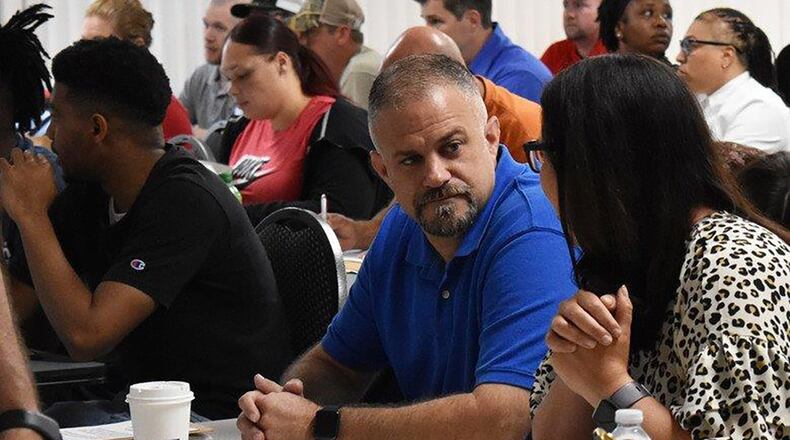“Civilian Airmen make up more than two-thirds of our AFMC workforce and support the warfighter in all aspects of our mission,” said Col. Charles Parada, deputy director, AFMC Manpower, Personnel and Services. “We need to make sure that when they arrive at AFMC they understand the Air Force culture, our mission and how they play a role in our success. It is also imperative that they are able to be fully mission-functional as soon as possible.”
A 2018 review of AFMC civilian on-boarding revealed that there was a lack of consistency in processes and trainings across the command. Employees often experienced long wait times in obtaining base and Air Force network systems access, training delays and more, limiting their ability to be fully productive members of the AFMC team.
The acculturation program aims to decrease on-boarding time while increasing effectiveness, ultimately setting employees up for success.
“New employees are excited to start work and want to get started as soon as they can,” said Mandy Smith-Nethercott, program lead. “We’re doing everything possible to make this happen and ensure they feel part of the AFMC family from the start. This required us to look at current processes and procedures to see where we could eliminate or do things better.”
A key aspect of the AFMC acculturation model centers on a four-day on-boarding expectation for new employees across AFMC. This includes completion of new employee orientation, total force awareness training, common access card acquisition and unit in-processing requirements all within the first week of work.
To support this expectation, AFMC civilian personnel and unit sponsors actively engage with new employees to ensure completion of all pre-employment paperwork and testing ranging from fingerprinting to physicals, drug tests, security clearance applications, base access requirements and more prior to the first day of work.
The elimination of the Department of Defense Form 2875 requirement for unclassified Air Force network access, one of a number of processes streamlined as a part of the program overhaul, enables employees to get on their computers from day one after showing completion of information assurance training completed during the pre-employment process.
“The DD 2875 was just one of a number of requirements that we examined with the help of the AFMC We Need and continued process improvement teams to facilitate positive change in on-boarding,” said Smith-Nethercott. “The DD 2875 delays were identified as a significant cause of long on-boarding times during the AFMC We Need review, causing frustration across the board. We’re thrilled that we were able to overcome this barrier.”
In addition to the pre-employment and four-day training standardization, a new mobile application for new hires aims to help new employees navigate the “must-dos” during the first few weeks of work. The application includes checklists, maps of key base locations, informational documents on benefits, Air Force culture information and more.
“It’s challenging to come into a new organization. We wanted to create a platform that can help put new employees at ease and help them find the information they need during the first few weeks of work,” said Lindsay McNeely, AFMC workforce development specialist. “We hope that this helps us make a good first impression as we welcome new members to the AFMC family.”
The AFMC Acculturation team continues to improve and modify the program, relying on monthly metric reporting and employee and supervisor feedback to gauge success and areas of improvement need. Initial feedback for the program is positive, and the team expects this trend to continue as the program grows across AFMC.
“Acculturation is a team sport, and the progress we’ve made in the past year is enormous,” said Parada. “Our new employees will help set our culture for years to come, and we’re pleased to be setting them on the right journey as members of Team AFMC.”
About the Author
